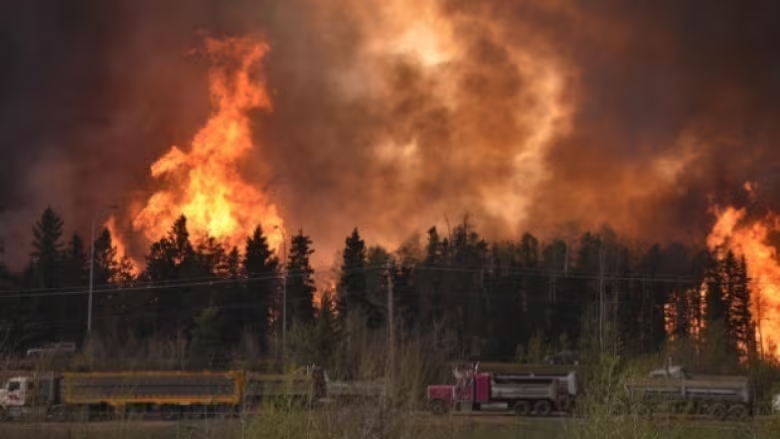Headline:
Wildfires Pose Long-Term Mental Health Risks, Experts Urge Enhanced Support for Evacuees
Subheadline:
Up to 60% of adults could experience PTSD months after escaping wildfires, highlighting the need for sustained mental health interventions.
Body:
The mental health impact of wildfires can linger far beyond the immediate physical danger, with new research indicating that up to 60% of adults might experience post-traumatic stress disorder (PTSD) up to six months after evacuating from a wildfire. The study also suggests that at least one-quarter of those affected could develop major depressive or anxiety disorders.
Helen Malone-Babineau, who has survived two wildfires in the past eight years, recently relocated to Halifax in search of safety and stability. Despite her move, she continues to feel anxious whenever she smells smoke or sees social media posts about wildfires. Although she sought therapy after the incidents, Malone-Babineau believes more long-term mental health support should be available for evacuees like herself.
The study emphasizes that mental health effects from wildfires can be difficult to detect and address due to their often less visible nature compared to physical injuries. Researchers recommend that public health officials take proactive steps in reaching out to evacuees, offering reassurance, and providing mental health services.
Dr. Courtney Howard, an emergency room physician and co-author of the study, advocates for a broad, population-level approach to mental health care, including visiting schools and workplaces to check in on those affected. Additional recommendations include making it easier for mental health professionals to track and support evacuees across provincial lines, expanding virtual care options, and integrating mental health considerations into hospital disaster management plans.
The urgency of these measures is underscored by the increasing frequency and intensity of wildfires in recent years. Last year alone, over 7,000 wildfires burned across Canada, scorching more than 17 million hectares of land—a record high. This year, more than 4,200 fires have already been reported, with several communities in British Columbia and Alberta forced to evacuate.
Chris Erickson, who lost his home to a wildfire in West Kelowna last year, describes the ongoing struggle to maintain his mental health while dealing with insurance claims and temporary living arrangements. Despite accessing counseling services and crisis lines, Erickson acknowledges that the full emotional impact of his loss continues to unfold.
Mental health professionals stress the importance of long-term support for wildfire evacuees, including government-funded therapy sessions for those unable to afford treatment. As climate change drives increasingly severe wildfire seasons, experts warn that mental health care must be prioritized to prevent long-lasting psychological harm.

